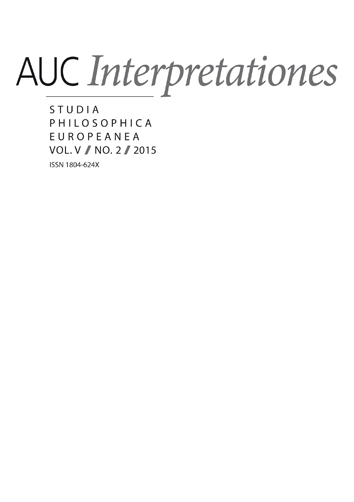Contingency and Infinity. László Tengelyi’s Final Remarks on the Possibility of Phenomenological Metaphysics
Contingency and Infinity. László Tengelyi’s Final Remarks on the Possibility of Phenomenological Metaphysics
Author(s): Bence Péter MarosánSubject(s): Philosophy
Published by: Univerzita Karlova v Praze, Nakladatelství Karolinum
Summary/Abstract: In Tengelyi’s interpretation the phenomenology of Edmund Husserl should be read as a categorical analysis of experience which is principally neutral concerning the metaphysical questions of worldviews (Tengelyi, “Der methodologische Transzendentalismus der Phänomenologie”, in: Carlo Iena – Hanne Jacobs – Filip Mattens (ed.), Philosophy, Phenomenology, Science. Essays in Commemorationof Edmund Husserl, Dordrecht, Springer, 2010, 135–153). In his opinion Husserl’s phenomenology strove to distinguish itself from traditional metaphysics. In another text Tengelyi emphasizes the role of primordial facticity (Urfaktizität) in Husserl, which delineates the contours of a phenomenologically transformed metaphysics: a metaphysics of contingency (“La phénoménologie et les catégories de l’expérience”, in: Karel Novotný, Alexander Schnell, László Tengelyi (Hrsg.), La phénoménologie comme philosophie première, Amiens – Prag, Filosofia Verlag 2011, 153–167).Beside this metaphysics of contingency one also finds another conception of metaphysics in Husserl which was important to Tengelyi too: the metaphysics of Absolute and the problem of constructing the concept of this Absolute. This problem appeared in Husserl’s works around 1907/08 at the latest (Ms. B II 2, partly in Husserliana 13, 42) and it remained a decisive problem for him until the end of his life. The problem of the Absolute appeared in Tengelyi’s last book (Welt und Unendlichkeit. Zum Problém der phänomenologischen Metaphysik, München – Freiburg, Karl Alber Verlag, 2014) as the problém of the infinity of the world. Tengelyi interpreted infinity on the basis of openness, but he accepted the possibility of constructing an actual, absolute, all-encompassing infinity. In his interpretation the experience of openness is the basis of every religious experience of God, (Tengelyi, 2014: 556). I would like to show that beyond the differences there are also strong similarities between Husserl’s and Tengelyi’s understanding of phenomenological metaphysics.
Journal: Acta Universitatis Carolinae Interpretationes
- Issue Year: 5/2015
- Issue No: 2
- Page Range: 59-70
- Page Count: 12
- Language: English

